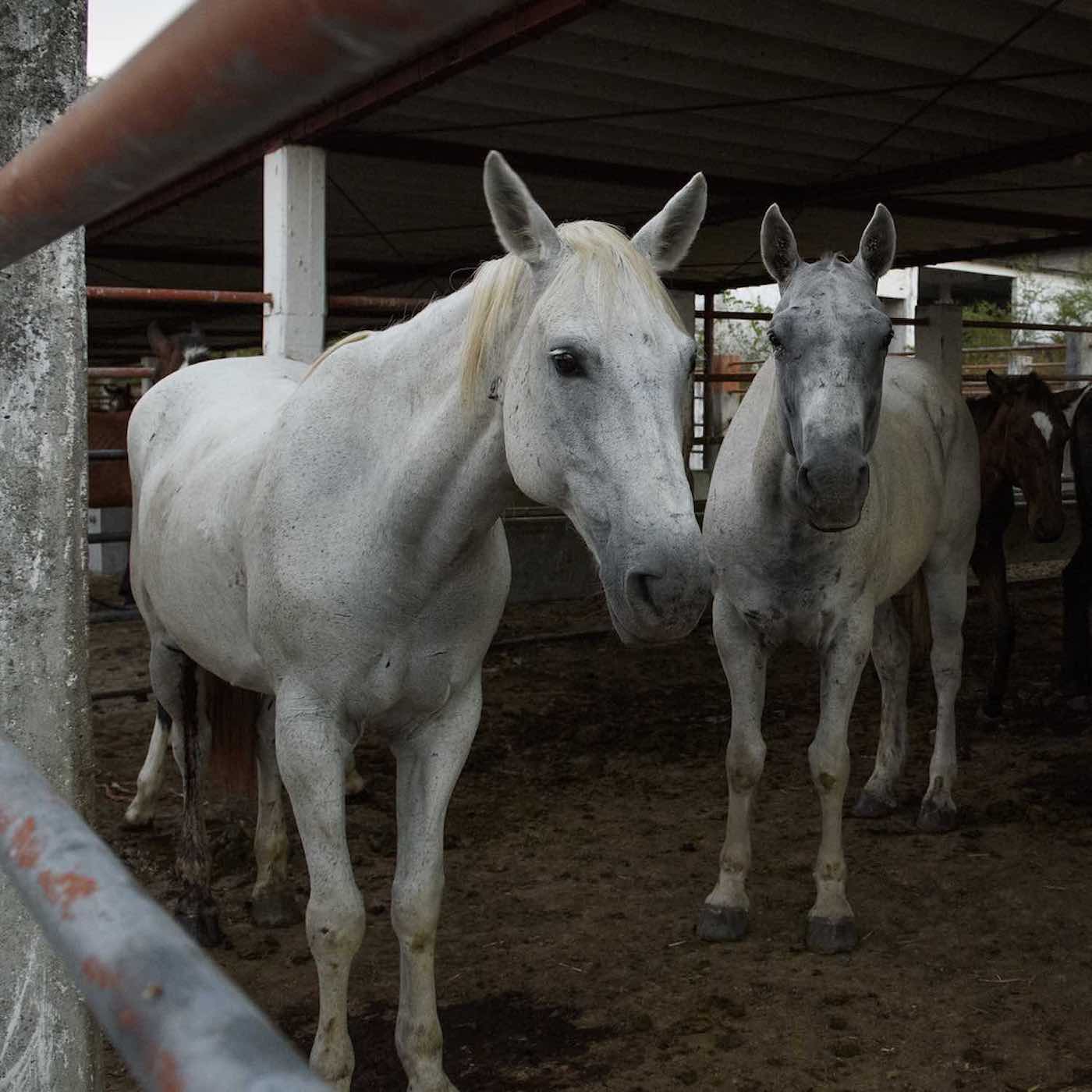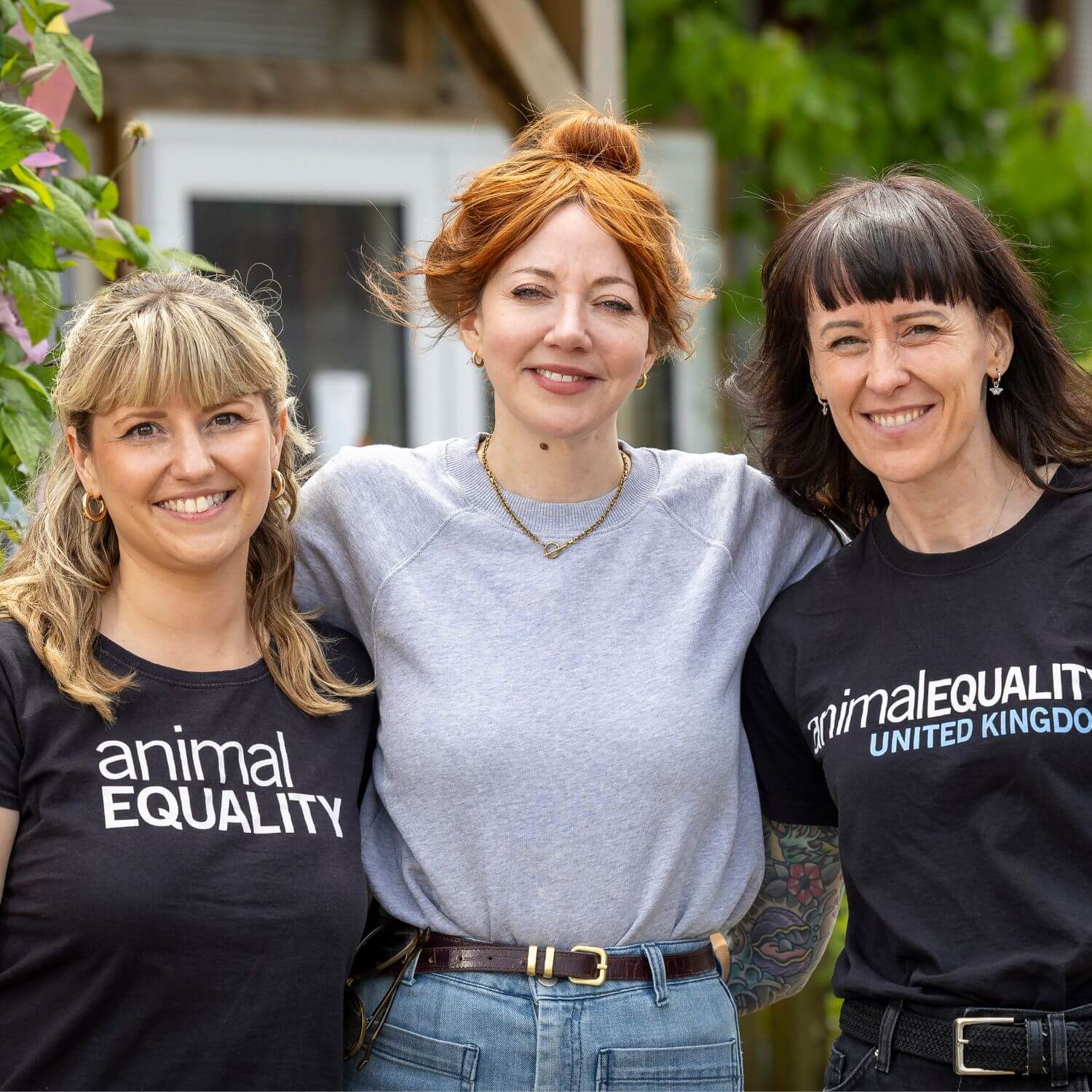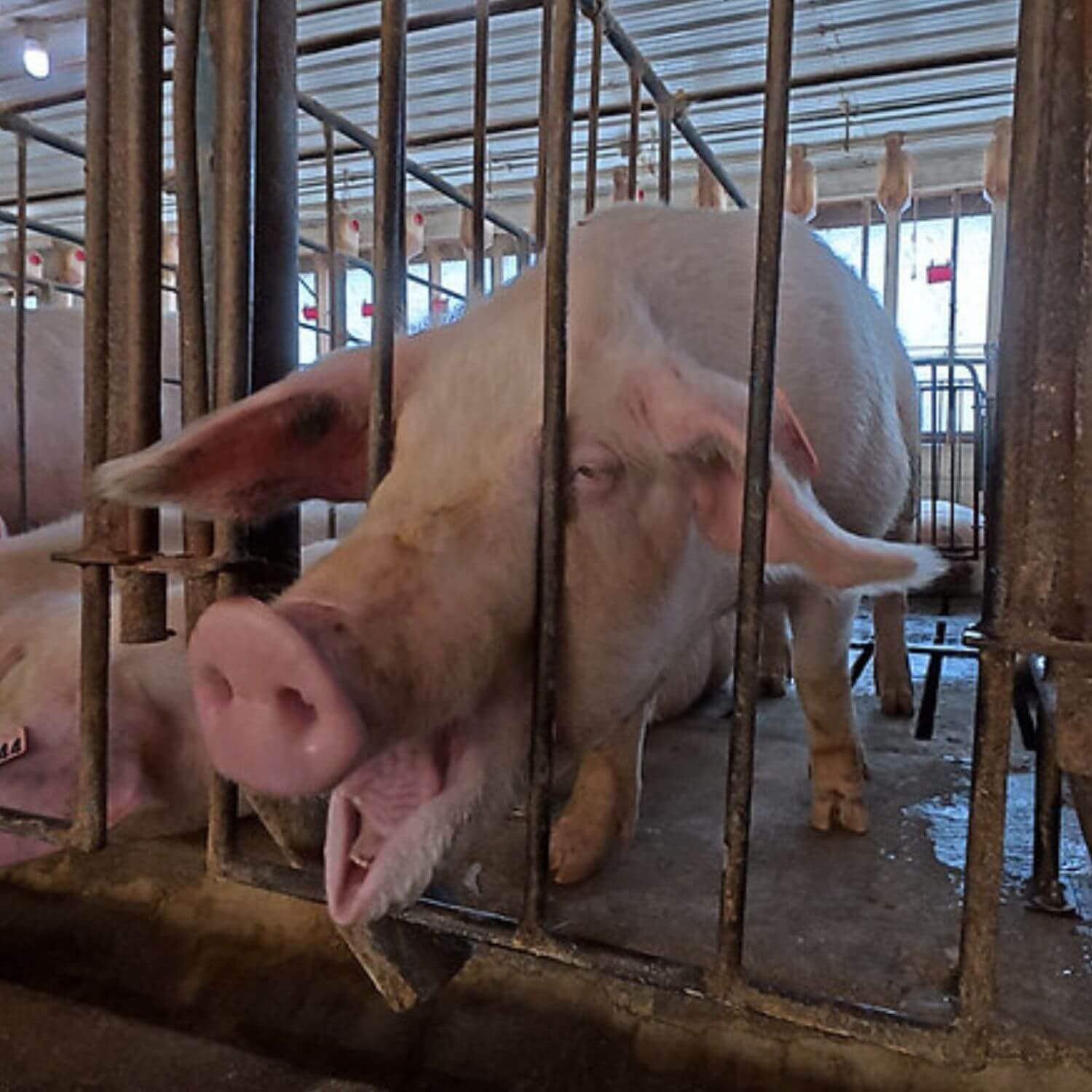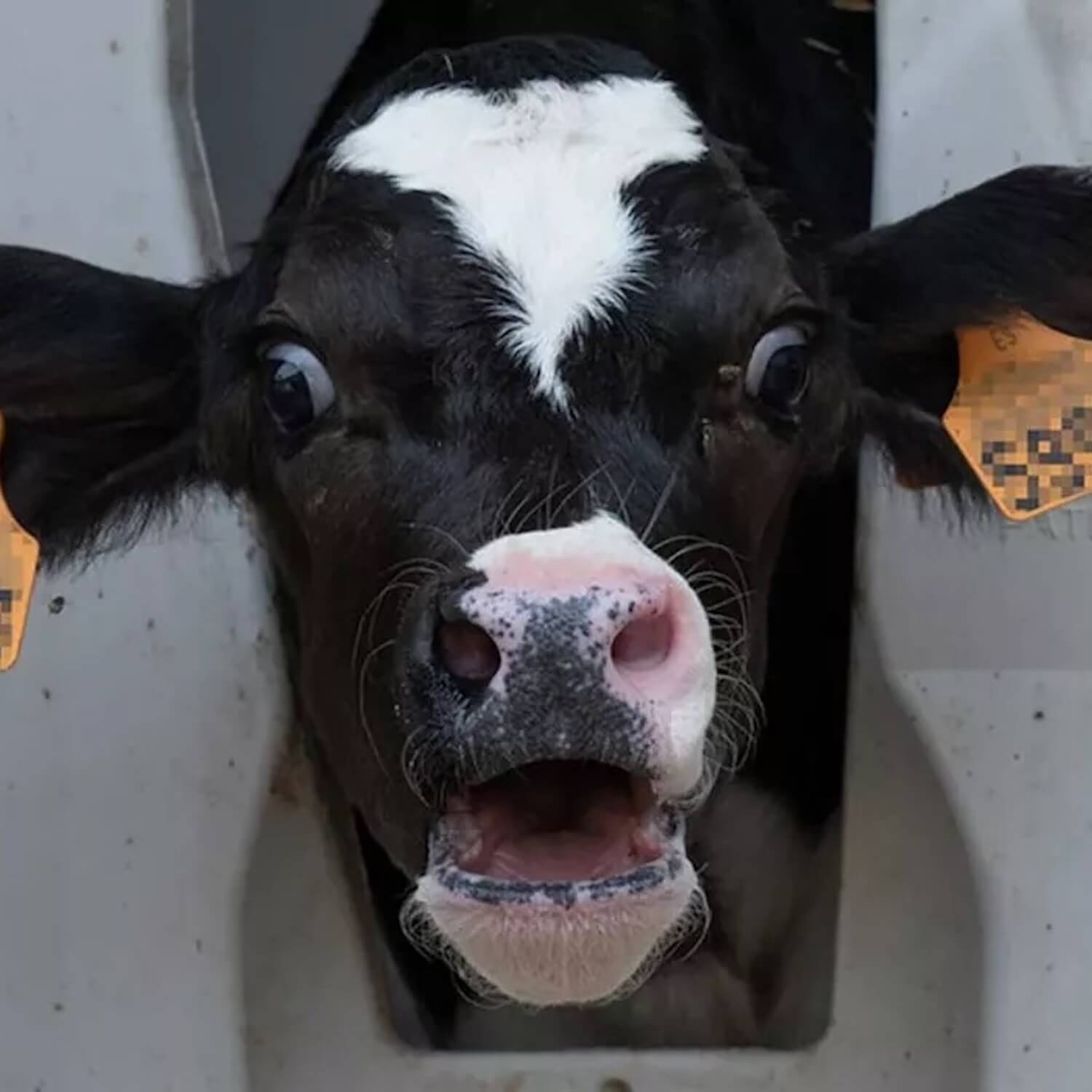Investigation by Animal Equality uncovers horses beaten and slaughtered for meat in Spain

More than ten years after exposing the horse meat industry in Spain, Animal Equality and award-winning photojournalist Aitor Garmendia returned for another investigation.
Between November 2023 and May 2024, investigators captured the following at a slaughterhouse in Asturias, Spain:
- A worker beating a horse with a stick, forcing them to walk.
- Horses lined up behind a small stall, where they are slaughtered in front of each other.
- A horse attempting to escape the slaughter area after witnessing the death of a companion.
- Horses improperly stunned and conscious at the time of slaughter, with several bleeding to death, writhing in pain, or showing other signs of life.
We have been denouncing this industry for years and conducting investigations both in Spain and abroad. We can assure you that animal abuse is all too common. Consumers need to know the truth behind horse meat
Javier Moreno, Co-founder of Animal Equality
The horse meat industry in Spain and beyond
Despite a decline in domestic consumption, Spain remains the largest producer of horse meat in the European Union. Much of this meat is exported to countries like Italy and France, where horse meat is more commonly consumed. However, Spain is not alone in this practice; horse consumption remains prevalent in other parts of the world as well.
In the United States, while horse meat consumption is effectively banned, over 20,000 horses are still exported to Mexico and Canada for slaughter each year. Animal Equality has documented similarly distressing scenes in Mexican slaughterhouses. A 2022 investigation exposed severe violations of the Mexican Official Standard, which aims to minimise animal suffering. The footage revealed animals being hung by chains and suffocated while conscious, beaten with sticks, and ineffectively stunned before slaughter.
At Animal Equality, we are doing everything in our power to continue exposing the horse meat industry, pushing for stronger legal protections in order to end this cruelty globally.
The situation in the UK
While the number of horses slaughtered is relatively small compared to other farmed animals, and the amount of horse meat imported is negligible, horses continue to be slaughtered in the UK each year. According to Freedom of Information requests to the Food Standards Agency, in 2022, 548 horses were slaughtered in England and 1,562 in Ireland. These figures pale in comparison to the over one billion chickens and up to 77 million fish that are farmed and slaughtered in the UK each year, but it also represents an opportunity for legislators to stop the slaughter of horses entirely.
Most of this meat is then sent abroad. Results from a 2022 survey by the Food Standards Agency of all slaughterhouses in England and Wales from 7th March to 13th March 2022 indicate that 100% of the horse meat ‘produced’ during this period was exported.
Compassion beyond horses
While horse meat is generally frowned upon by the British public, who largely view horses as companion animals, it’s important to recognise that other animals in the meat industry – cows, sheep, pigs, chickens, and fish – are also individuals capable of experiencing pain and suffering. Despite this, they do not receive the same level of empathy and protection.
Animal Equality’s investigations show that it is not only horses who suffer at the hands of the meat industry, but other farmed animals too. Here in the UK we have filmed pigs being beaten to death with hammers on a Quality Meat Scotland-assured farm, salmon being thrown to the ground and having their gills cut while conscious in a Scottish abattoir, and sheep getting caught in slaughterhouse machinery and being beheaded.
Go plant-based!
Horses, like all animals, deserve to be treated with protection and respect. The cruel practices documented in Spain, and the apparent lack of law enforcement in the UK all point to a need for greater oversight and scrutiny of these industries. But beyond legal reforms, there is a growing call for a shift in consumer behaviour.
By choosing a plant-based diet, we can reduce the demand for industries that profit from animal suffering. As our team at Animal Equality continue our vital work in exposing these cruelties and fighting for stronger legal protections, we are confident that more and more people will become aware of the dark realities of animal farming and slaughter, and make more compassionate food choices as a result.
Protecting animals isn’t just about changing laws, it’s about changing hearts, minds and diets. By going plant-based, we can all play a part in ending the cruelty within the horse meat industry and beyond.

Companions Not Food
Like horses, other farmed animals are sensitive and intelligent beings who deserve protection. You can stand up for all animals by choosing plant-based foods.




